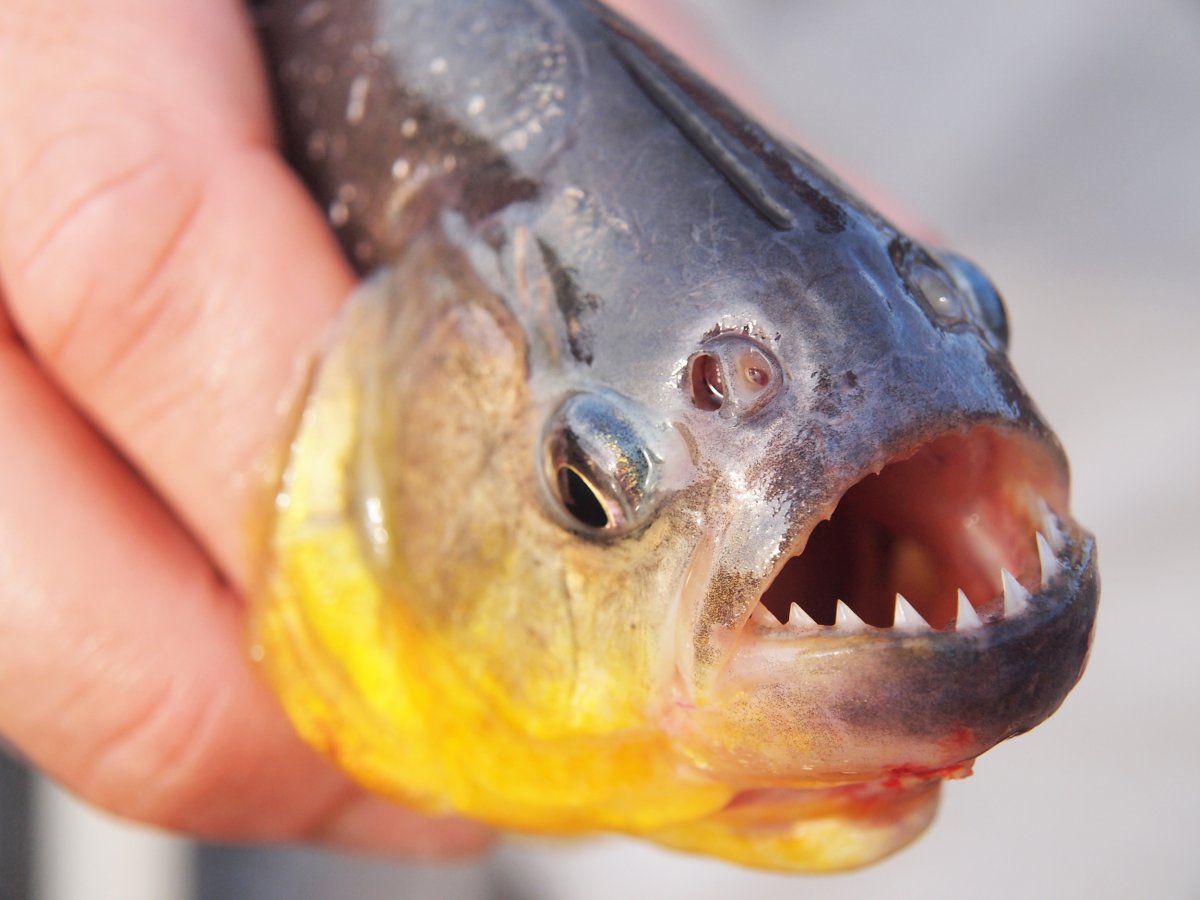Tourists have been attacked by a shoal of vicious piranhas in Brazil, leaving them with bleeding wounds. Eight people were injured by the fish at the beach resort, located in Tarumã-Açu, near the city of Menaus, on May 1, according to local news portal g1. This alarming incident has raised concerns about piranha attacks in popular tourist areas, prompting experts to clarify the risks involved with these notorious fish.
Adaiany Monteiro, a university student who was one of the attack victims, recounted her frightening experience. She said, "I felt a shock on my heel, I even thought it was an electric eel. When I left, I saw that some people were talking about piranhas and bites. I noticed my foot and saw the bite mark." This incident serves as a reminder that even in paradise, the natural world can pose unexpected dangers.
While piranha attacks are often sensationalized in movies, they do happen in real life. Experts suggest that these attacks occur when piranhas are provoked or mistake humans for prey. In the first half of 2007 alone, there were 190 reported piranha attacks in a lake near Palmas, Brazil, all of which resulted in minor injuries. Understanding these creatures is vital for anyone venturing into waters where they reside.
Piranhas are freshwater fish found throughout rivers and floodplains across South America. There are many species of piranha, somewhere between 30 and 60, but the true number is still unknown. The largest and most notorious species, the red-bellied piranha, can grow to up to 20 inches long. Red-bellied piranhas are renowned for their vicious hunting tactics, swarming their prey with razor-sharp teeth.
These fish do indeed have a powerful bite: one study published in the journal Scientific Reports in 2012 found that black piranhas have a bite force of 72 pounds, three times their own body weight. Piranhas do occasionally attack humans, but these don’t result in the same flesh-ripping swarms as Hollywood movies often portray. Instead, minor injuries are usually the only outcome, and piranhas don’t deliberately attack humans as prey.

The victims of the May 1 attack thankfully only received minor injuries. People suffering from piranha wounds are advised to leave the water immediately and seek medical attention. Romes Proença, a doctor from the Mobile Emergency Care Service, emphasized the importance of reacting quickly, saying, "The first course of action when being attacked is to get out of the water and try to signal the accident as quickly as possible so that other people don’t get hurt."
Understanding how to react to piranha bites can be crucial for safety. Proença advised against using products like detergent or antiseptics on wounds and recommended applying pressure with a clean cloth. Not seeking assistance increases the risk of tetanus and infection, making it essential for victims to seek medical care promptly.
Do you have an animal or nature story to share with Newsweek? Do you have a question about piranhas? Let us know via science@newsweek.com.
Trump-Endorsed Candidate David Shoar Loses Florida Primary To DeSantis-Backed Tom Leek
Melania Trump: Fashion, Language Skills, And Public Appearances Under Scrutiny
Idaho's Population Boom Amid National Decline In Birthrates


